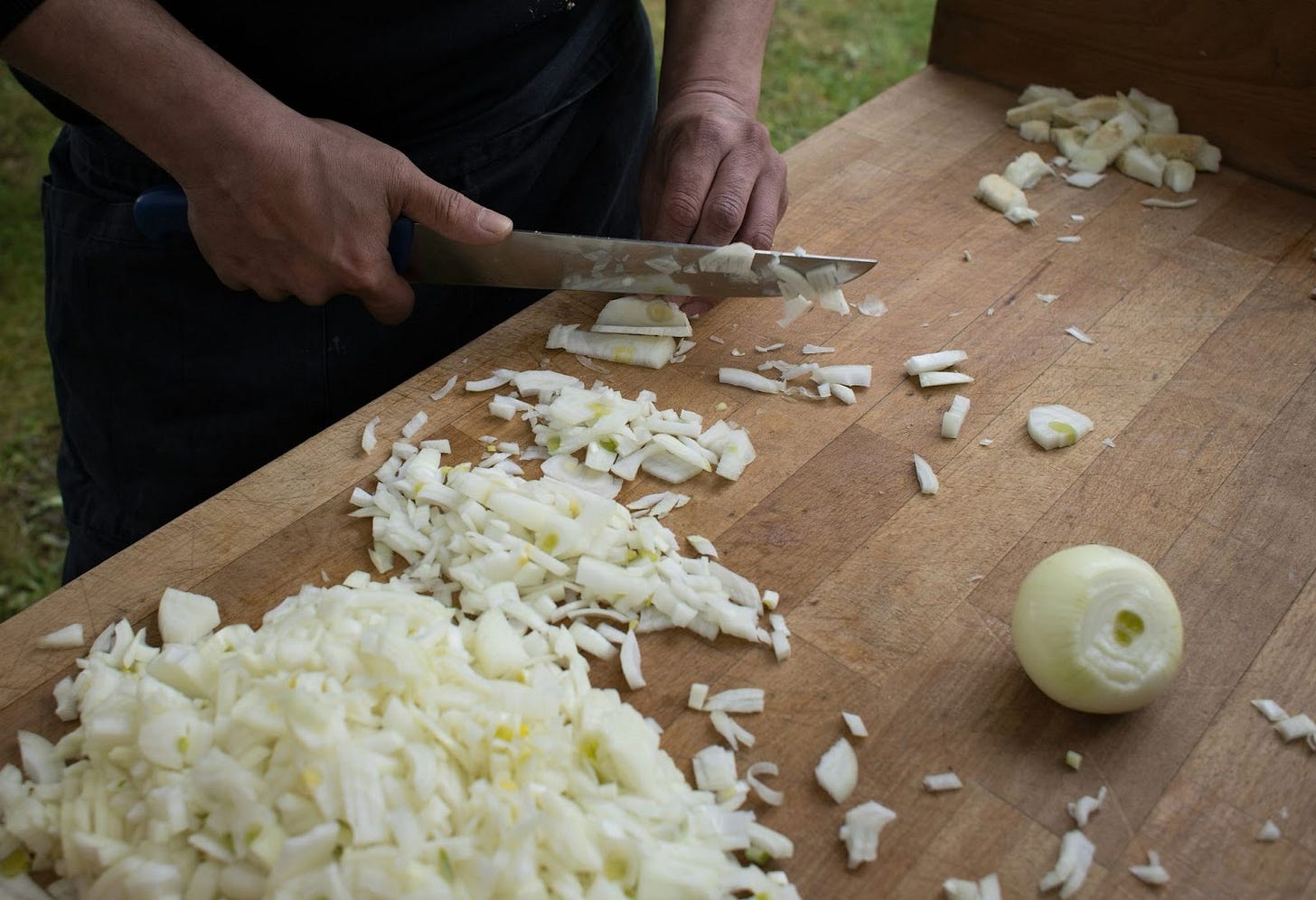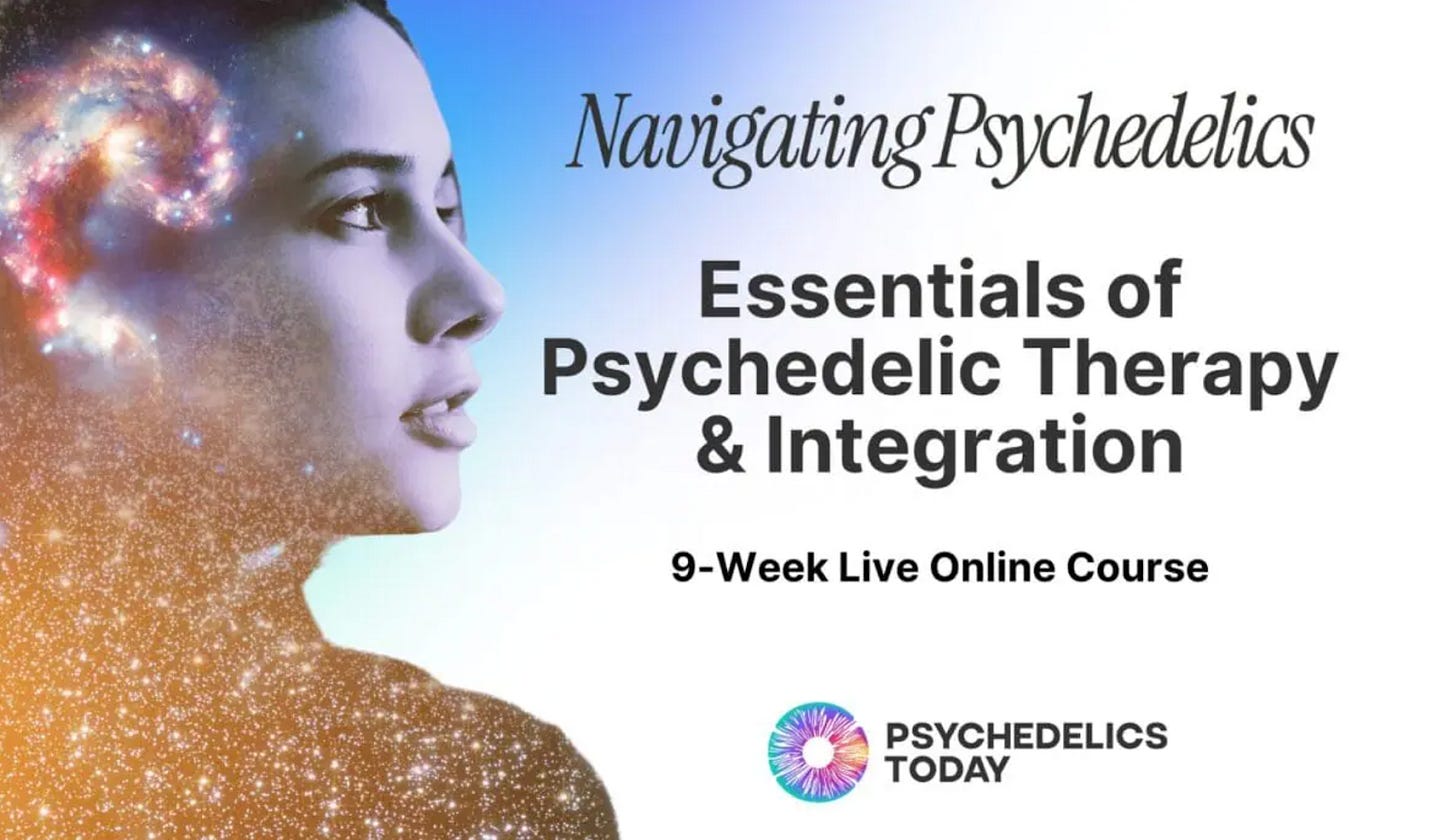#147: 🍄 Psilocybin Rescheduling: The DEA Just Made a Historic Move
After 3.5 years of legal battles, psilocybin could move from Schedule I to Schedule II - here's what that means for patients and research
Hey Friends,
I’ll be attending the NEXii Longevity Congress 2025 which takes place October 8–9 at the Alfândega Porto Congress Center.
Global leaders from science, business, and policy will explore how longer, healthier lives are transforming health, investment, and society.
Register using the code NINA50 for a €50 reduction on online registration
Registration Link - Registration - NEXii Longevity Congress
💬 In this note:
🍄 Psilocybin Rescheduling: The DEA Just Made a Historic Move
🎧 How Not Talking About Money Is Stopping You From Making It
⚡️ Cutting An Onion Without Tears
🍄 Psilocybin Rescheduling: The DEA Just Made a Historic Move
The U.S. DEA just advanced a petition to reschedule psilocybin from Schedule I - and this could change everything for how we approach mental health treatment in America.
After 3.5 years of court fights led by Dr. Sunil Aggarwal and the AIMS Institute, the DEA has finally forwarded a petition to reschedule psilocybin to the Department of Health and Human Services (HHS).
If approved, psilocybin could move from Schedule I to Schedule II, making research dramatically easier and potentially opening access for patients through Right to Try laws.
This is the first real progress since Dr. Aggarwal first petitioned for rescheduling in 2022, and the timing couldn't be better given the current political climate.
Why Schedule I Has Been Such a Problem
For those of you that don’t know about the Scheduling system, let's back up for a second.
The Controlled Substances Act (CSA) was written in the 1970s, following Richard Nixon's 'War on Drugs' and the formation of the DEA.
Under this system:
Schedule II-IV drugs can be prescribed by healthcare providers
Schedule I substances are prohibited and classified as having "no currently accepted medical use," "a lack of accepted safety" for supervised use, and a "high potential for abuse"
The problem here is that the CSA doesn't clearly define "medical use."
Which is where things get interesting for psilocybin advocates.
The Cannabis Playbook
Researchers and advocates are looking at how cannabis was rescheduled as their strategic guide.
The petition requests a scientific and medical evaluation of psilocybin, and advocates believe this could move quickly because the FDA has already granted "breakthrough therapy" designation to psilocybin
Extensive clinical trial data has been generated around several disorders, and there's growing political support for psychedelic research
If the HHS and FDA recommend rescheduling, the DEA can move forward with the change.
Who This Could Help Immediately
If psilocybin moves to Schedule II, it opens the door for legal therapeutic use - especially under federal and state Right to Try laws, which allow terminally ill patients to access investigational treatments before full FDA approval.
This could mean immediate relief for:
Veterans with PTSD at high risk of suicide
Patients facing end-of-life anxiety and depression
Individuals for whom conventional treatments have failed
The FDA has already designated psilocybin-assisted therapy as a "Breakthrough Therapy" for depression.
This rescheduling push gives that designation real teeth.
Psychedelics Use Is Rising
Here's what the data shows about current psychedelic use in America.
For young adults (19-30), psychedelic use jumped from 3.4% in 2018 to 9% in 2023.
For adults (35-50), that number is now at 4% in 2023.
In the past year, over 8 million adults used psilocybin.
Legally or illegally, psychedelic use is happening.
We should focus on how to have responsible and safe experiences.
Why Psychedelic Education Matters More Than Ever
Like it or not, psychedelic use happens outside of clinical settings, and people are experimenting without structured support.
The problems I'm seeing:
Misinformation is everywhere
Hype often skips over risks and complexities
Integration is often skipped (this is where change happens - and without it, insights fade)
Whether you're a facilitator, user, or just psychedelics-curious, education is critical.
You're already reading my notes, which is a great start.
My mission here is to make science approachable because with understanding, we can make clearer decisions and ultimately feel comfortable around the unknown.
Additional Resources for Deeper Learning
For those more closely involved in psychedelic therapy and support, Psychedelics Today is offering a course on "Essentials of Psychedelic Therapy and Integration."
Course Details:
9-week program starting September 9
Tuesdays from 7-8:30pm EST (recordings available)
Learn trauma-informed, somatic, and integration tools
Prepare clients for psychedelic work
Navigate risks, red flags, and complex experiences
Stay current on latest research, safety, and ethics
Addressing the Safety Question
So what does this mean for protecting people from addiction and injury?
The original drug scheduling system was designed to classify drugs with high addictive potential.
However, over the years, we've seen drugs classified into Schedule I while highly addictive substances (like opioids) were prescribed at alarming rates.
Regarding safety and abuse potential, many experts agree that psilocybin has a low risk of toxicity and very low potential for addiction or dependence.
In clinical trials, side effects are usually temporary and mild.
Though psilocybin experiences can be challenging because they bring up difficult emotions, participants often report they're among the most meaningful experiences of their lives, producing benefits that last for months.
How We Can Prevent Abuse
Education is the first place to start.
Fighting stigma comes next.
Then showing real-world evidence.
When people are ditching their SSRIs for quarterly psilocybin sessions, we'll see the real impact.
Many people have their first encounter with psychedelics in party or festival settings - partly because of their illegal nature.
If psychedelics are presented as medicine first, and psychedelic experiences are seen as something that should happen in therapeutic settings or ceremonies, this helps build respect for the experience and decreases abuse risk.
I've heard anecdotal evidence from many who do a macro-dose in a therapeutic setting for the first time and walk away saying, "I can't believe people do this at festivals and parties."
The "Gateway Drug" Fear vs. Reality
Something that worries some people is the effect of "chasing the high" - whether in therapeutic or recreational settings. Having a transformational experience can lead to urges to dive deeper.
This reminds me of the D.A.R.E. slogan from when I was growing up - that marijuana is a gateway drug.
The idea was to instill fear that smoking weed would lead down a slippery slope into drug abuse.
I disagree with the fear narrative.
Removing fear, stigma, and criminality actually lessens drug abuse.
The Portugal Model: A Real-World Success Story
My second suggestion to mitigate abuse is decriminalization.
In Portugal, where I live, the government decriminalized all drugs in 2001, shifting from punishment to a public health approach.
How it works:
Decriminalization removes criminality for small drug use
Large trafficking operations remain illegal
Public funds shifted from incarceration to prevention, treatment, and education
Stigma decreased, encouraging users to seek help
The results are very positive:
Drug-law offenses dropped, easing pressure on police, courts, and prisons
Drug-related deaths fell, and HIV infections among drug users declined
Contrary to fears, drug consumption did not rise
Treatment access expanded, with more people seeking long-term care
The evidence shows decriminalization can cut harms without fueling abuse.
If psilocybin is rescheduled in the U.S., a Portugal-style health-first model could prevent misuse while expanding safe, supervised therapeutic access.
Federal Leadership Is Finally Catching Up
We're seeing something really interesting happen right now. Leadership across multiple federal agencies is voicing support for psychedelic research and access.
HHS Secretary Robert F. Kennedy Jr., FDA Commissioner Marty Makary, and VA Commissioner Doug Collins have all expressed openness to expanding psychedelic care, especially for vulnerable populations.
When I started writing about psychedelics in 2022, this kind of federal support felt impossible.
Now we're seeing a real shift in how leadership thinks about these treatments.
Maybe you've been following along with my coverage of Lykos’ MDMA-assisted therapy FDA rejection (Nina’s Notes #97) or the potential for psilocybin in treating Parkinson’s Disease (Nina’s Notes #134).
If this sounds familiar, you're seeing the science translate into policy in real time.
What Happens Next?
We wait for the decision from the HHS and the FDA regarding the petition.
They'll conduct a medical and scientific evaluation of psilocybin and send a recommendation back to the DEA.
Considering the large amount of clinical evidence already available and the public demand for access, many believe this will move quickly.
The next few months could be pivotal for the future of psychedelic medicine in America.
I'll be watching closely and keeping you updated as this unfolds.
📚 Content of the Week
Aspire Insights: How Not Talking About Money Is Stopping You From Making It with Nicole Lapin
Rating: ★★★★☆
In this week’s Aspire, Emma sits down with financial expert Nicole Lapin, author of Rich Bitch and Boss Bitch, to demystify money talk.
She talks about paying down debt with the “avalanche” method to simple investing rules like the “age in bonds” rule.
Nicole makes finance approachable and actionable. Beyond numbers, she shares how shifting your money mindset, from scarcity to abundance, can change everything.
I particularly liked how she doesn’t preach homeownership as the best way to build wealth.
As someone who sees the opportunity cost of a down payment, and also doesn’t stay in one place for 10 years at a time, I appreciated her take on this.
Have a listen if you want to up your money knowledge and take control of your financial future.
⚡️ Check This Out

I used to think I had a super power of not crying while cutting onions…
Until, I cut one while wearing my glasses instead of my contact lenses.
Turns out, the flood gates open and my eyes get so irritated that I had tears streaming down my face.
I had no idea my contacts acted like PPE (personal protective equipment) against the irritant, syn-Propanethial S-oxide found in the onion.
For those who don’t wear contacts, there is a solution to prevent the tears.
According to a team of physicists at Cornell University, the best way to cut an onion without crying is to have a very very sharp knife and cut it very quickly.
Their solution?
A tiny onion guillotine.
They published their findings in a preprint study.
I’m glad our research dollars are solving real-world problems. 🔪🧅
🗣️ Looking for the Nina’s Notes Podcast?
It’s available on: 🟢 Spotify, 🟣 Apple Podcasts, 🟠 Substack Podcasts
On the Nina’s Notes Podcast I interview entrepreneurs who are building products based on the science that I write about in the Nina’s Notes Newsletter.
You’ll also find voice overs of all the weekly Nina’s Notes.
Thanks for reading Nina’s Notes. If you like this newsletter, click the share button and send it to a friend.






